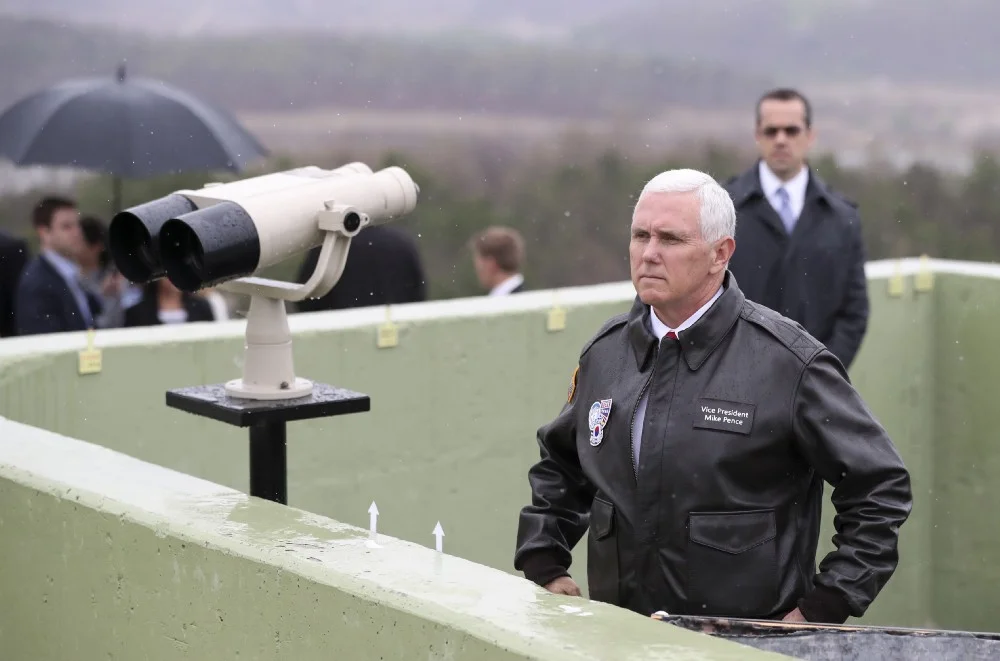How the US should respond to North Korea By Jun Kwon
U.S. President Donald Trump called North Korea a “big, big problem” following its recent ballistic missile launch. Why is North Korea - a rather small, impoverished, and isolated - considered a problem? And what makes it such a big and difficult problem?
No country has been more demonized and stifled by the international community than North Korea. The country has been under severe bilateral and international sanctions for its development and tests of missiles and nuclear weapons. The U.N. General Assembly has adopted a resolution every year for the last twelve years calling for referring North Korean leaders to the International Criminal Court for committing odious crimes against humanity. North Korea also has been diabolized for assassinating Kim Jong Nam, the half-brother of its supreme leader, Kim Jong Un.
Scholars of North Korea and policy makers in Washington often have a tendency to attribute all of these North Korean problems to irrationality of the totalitarian regime and to the regime’s pathological cult leader. In other words, they sum it all up: “Kim Jong Un and his close associates are lunatics, and they would not behave in the ways that they have done if they are not crazy and bad people.” This is not an accurate assessment of the North Korean conundrum.
Like individuals, states in the international relations are goal-oriented actors. Behaviors and policies of states are dictated by the goals that they pursue to achieve. Unless you understand goals of states, you are unable to ascertain the behaviors of states, which may result in calling them unpredictable, provocative, irrational, immoral, and insane.
Every country conducts its domestic as well as foreign policies aimed at achieving a set of goals. These goals, in order of priority, are security, prosperity, and identity. North Korea’s policy orientation has evolved in pursuing its systematic objectives of national security, economic prosperity, and national identity, not that unlike other nations.
Photo from Washington Post
National security is the most important consideration in shaping North Korea’s behaviors. When a small country like North Korea is confronted with a threat from enemies that are perceived to be hostile and militarily superior, the importance of national security cannot be over-stated. North Korea is encircled by the group of hostile countries: the sole superpower U.S. and far more economically advanced countries of Japan and South Korea. When the survival and security of a state are threatened, everything else becomes secondary. Security cannot be compromised for political and/or economic incentives or rewards.
The immediate explanation of the recent missile launches by North Korea is that it intended to take a bellicose posture in a response to the annual U.S.-South Korean joint military drills (the Key Resolve and Foal Eagle) around the Korean Peninsula this month. Pyongyang desired to send the message that it is capable of carrying out effective retaliation if its security is threatened. The recent display of aggression and the nuclear ambition of North Korea should be understood in the context of its pursuit of the national security goal.
China has proposed that “North Korea freeze nuclear and missile programs in exchange for a halt to major military exercises by American and South Korean forces.” The proposal would be conducive to temporarily diffusing the recent tensions and the hostile atmosphere around the Korean Peninsula, but it can’t be a permanent solution to the North Korea problem. The underlying root of the North Korean conundrum is derived from its deep-seated fear of regime collapse by a possible U.S. and South Korean military invasion.
It is reported that a major policy review toward North Korea is underway in Washington. According to several media reports, the Trump administration is considering all policy options to deal with North Korea including military strikes and regime-change. The military option should be ruled out even as a last resort. is Any aggressive military action will turn the Korean Peninsula into a blazing inferno. It is time to conduct serious bilateral talks with North Korea including the issue of turning a simple armistice between the U.S. and North Korea into a genuine “peace treaty.”
JT Kwon is Assistant Professor of Government at Utica College.






